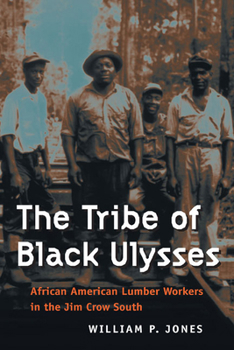The Tribe of Black Ulysses: African American Lumber Workers in the Jim Crow South
(Part of the The Working Class in American History Series)
Select Format
Select Condition 
Book Overview
The lumber industry employed more African American men than any southern economic sector outside agriculture. Yet little scholarship exists on these workers and their times.
William P. Jones merges interviews with archival sources to explore black men and women's changing relationship to industrial work in the southern sawmill communities of Elizabethtown, North Carolina; Chapman, Alabama; and Bogalusa, Louisiana. By placing black lumber workers within the history of southern industrialization, Jones reveals that industrial employment was another facet of the racial segregation and political disfranchisement that defined black life in the Jim Crow South. He also examines an older tradition of southern sociology that viewed industrialization as socially disruptive and morally corrupting to African American social and cultural traditions rooted in agriculture.
Related Subjects
20th Century African-American Studies Business & Investing Discrimination & Racism Economics History Labor & Industrial Relations Modern (16th-21st Centuries) Political Science Politics & Government Politics & Social Sciences Popular Economics Race Relations Social Science Social Sciences Specific Demographics State & Local




